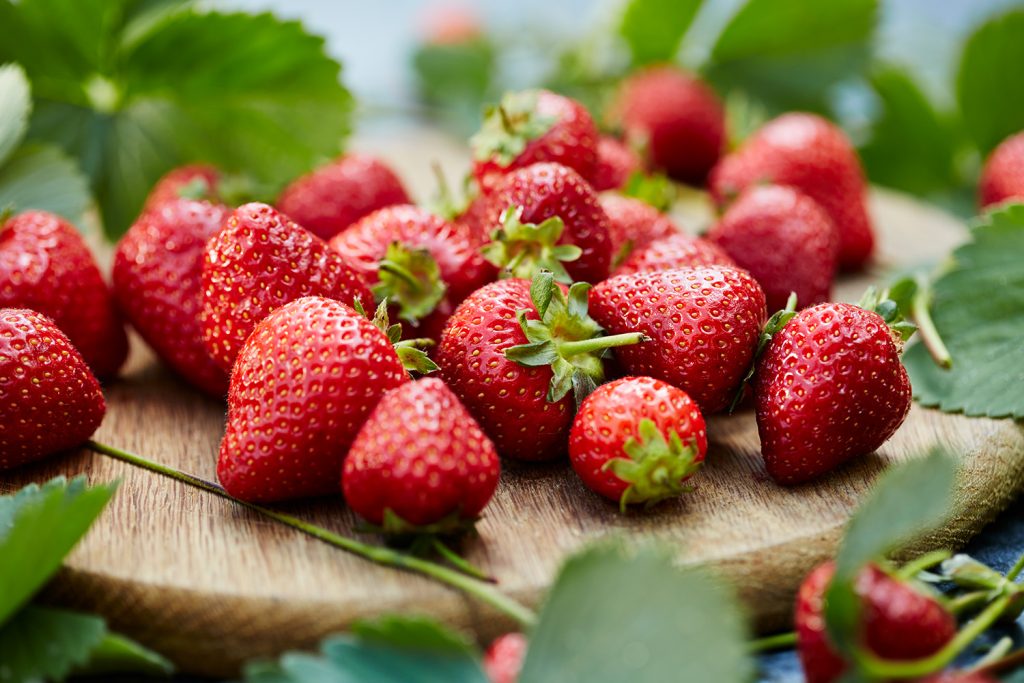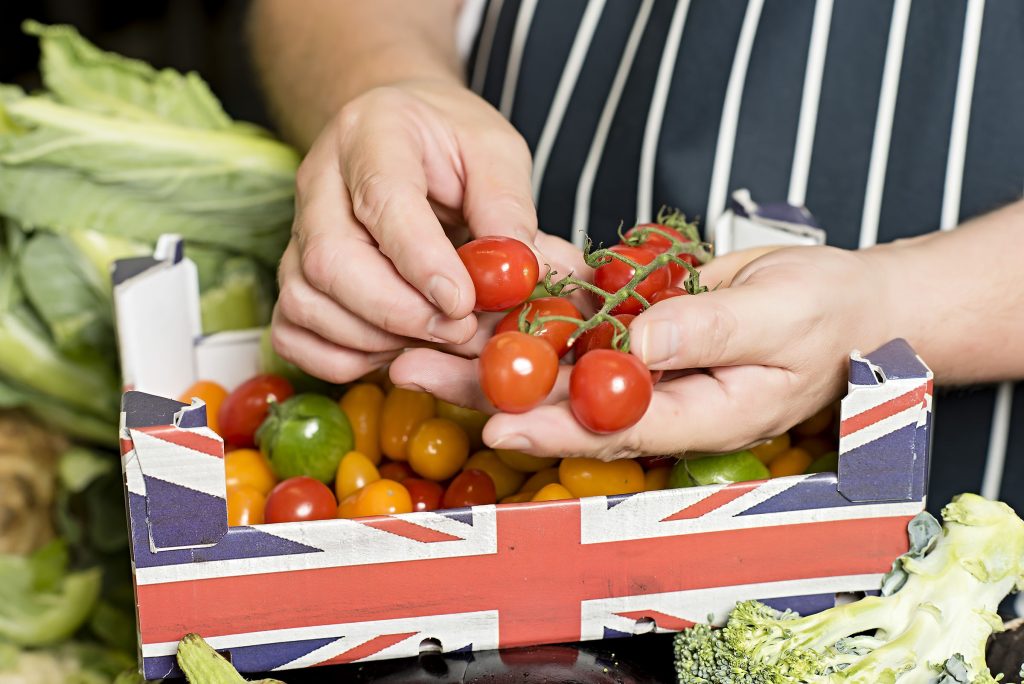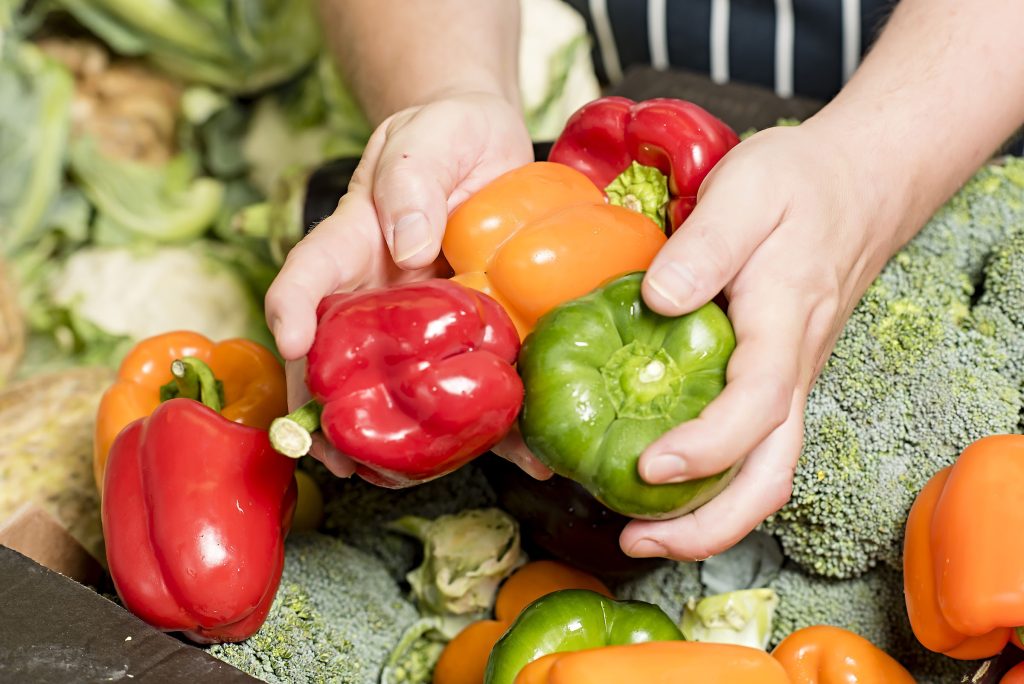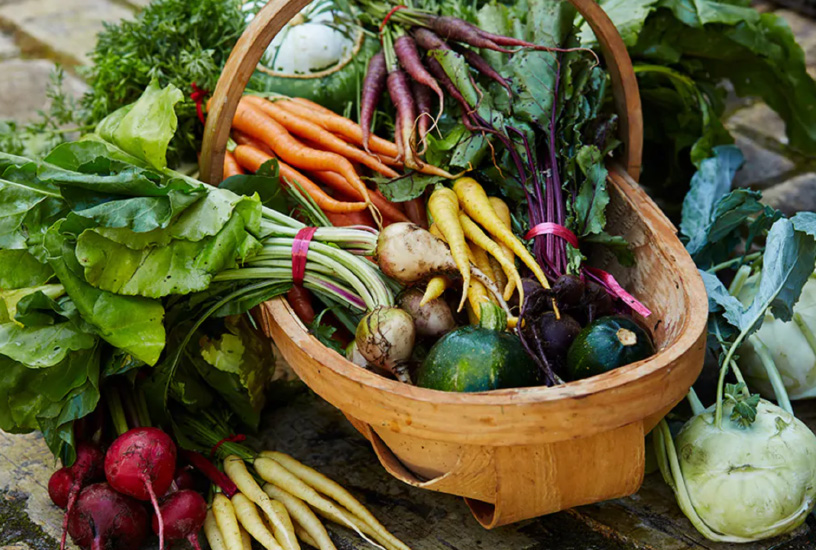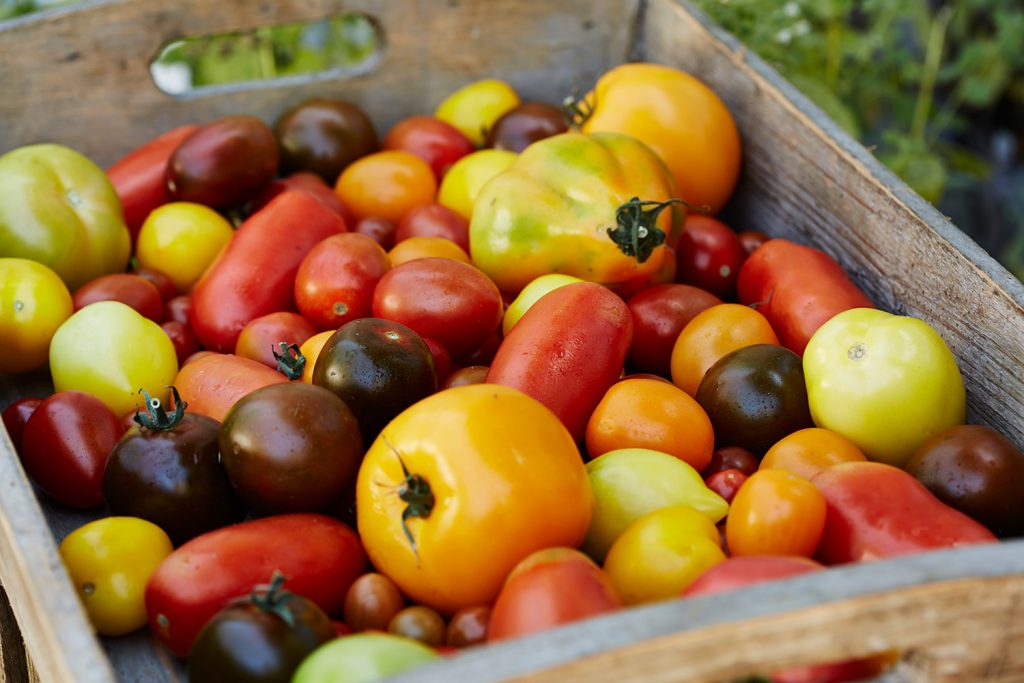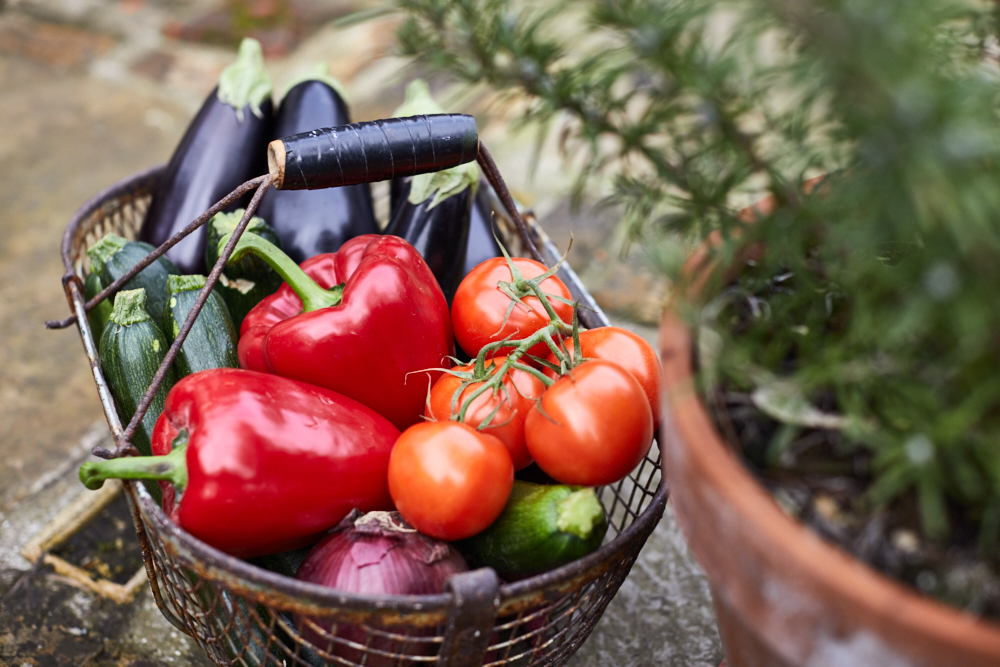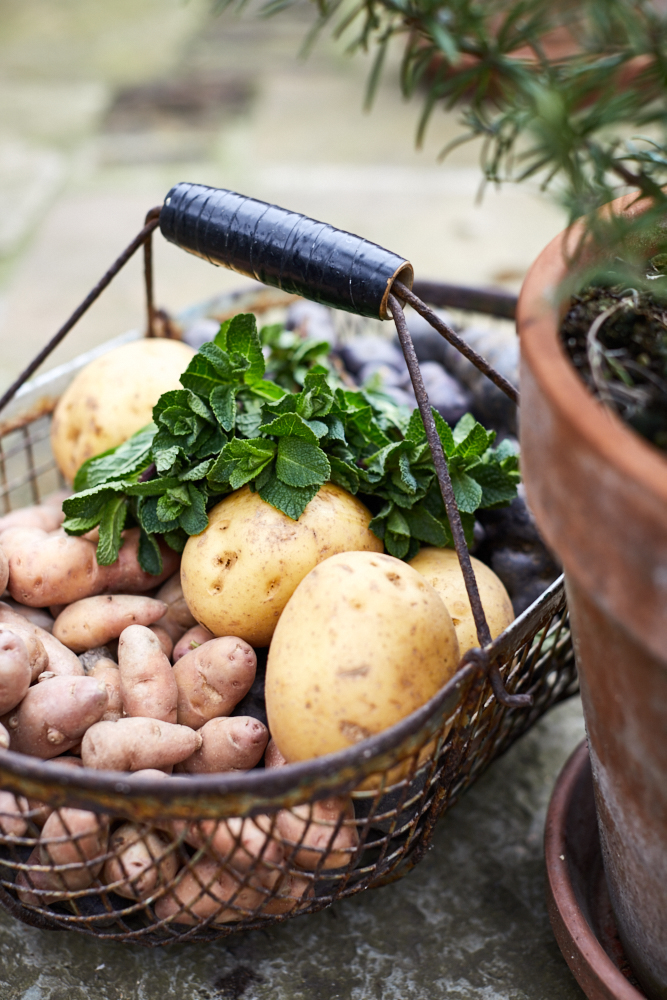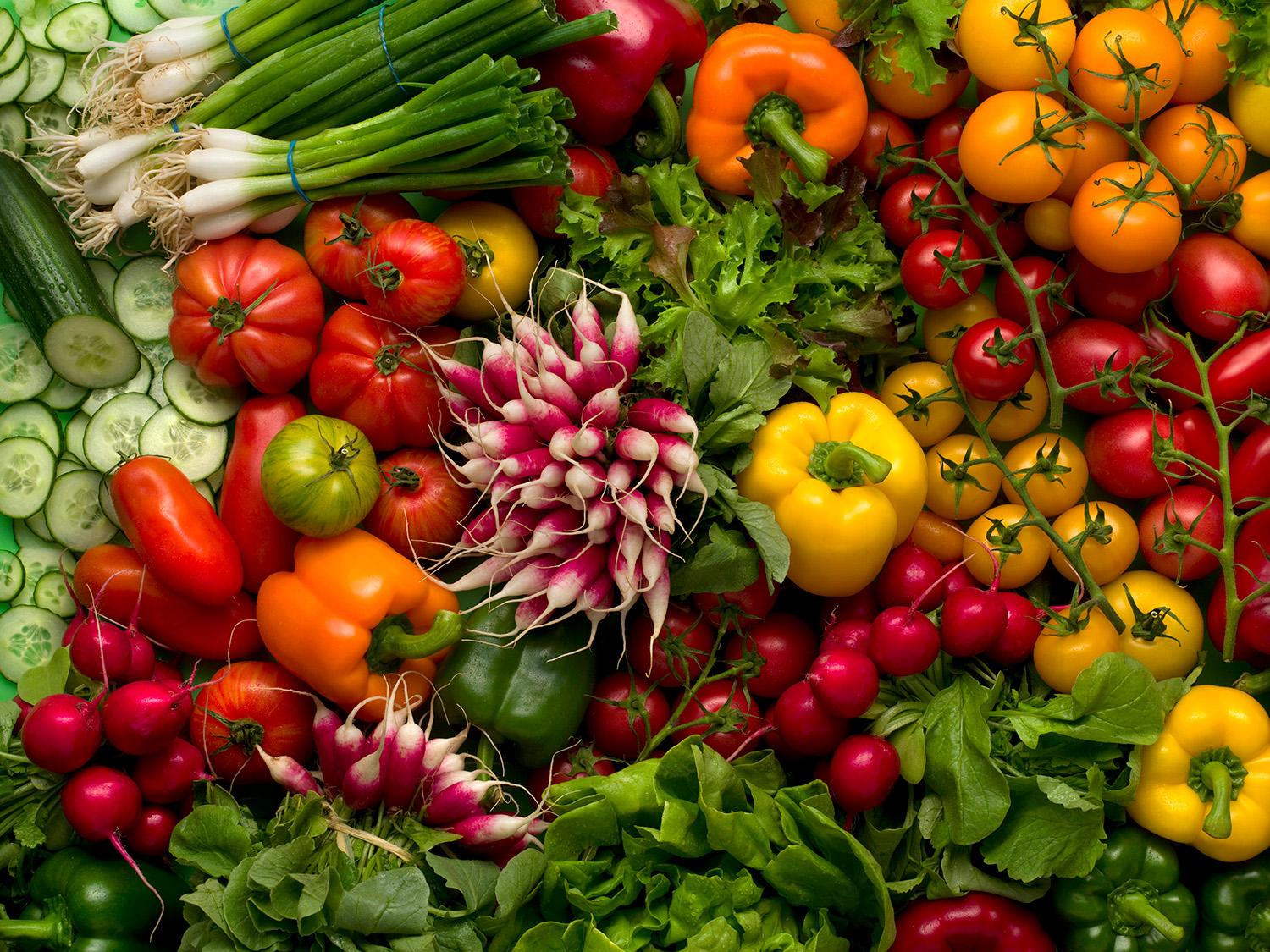
60 second summary:
- Eating seasonally and from the UK can have nutritional and environmental benefits.
- Foods eaten in season can be more nutritious and tastier.
- There is less need for preservation methods.
- Produce sourced seasonally and regionally has fewer food miles and therefore a lower carbon footprint.
- Buying from the UK supports British farmers.
- If you have children, encourage them to think about fruits and vegetables that are coming into season to create excitement for new tastes.

It’s British Food Fortnight, so what better time to consider some of the delicious fruit and vegetables that are available seasonally and from across the country?
But what does it mean to eat seasonally when we have become accustomed to buying broccoli and strawberries all year round?
Eating seasonally — choosing foods that are naturally harvested at the same time of year you’re eating them — can offer a range of benefits, particularly in terms of nutrition and environmental impact. Eating regionally – such as buying produce from the UK – can have further environmental benefits.
Nutritional Benefits of Seasonal Eating
- Fresher and more nutrient-dense produce:
- Fruits and vegetables that are in season are often harvested at peak ripeness, meaning they have had more time to develop nutrients.
- Out-of-season produce is often picked early, stored for long periods, and may lose nutrients over time, especially vitamin C, B vitamins, and antioxidants.
- Less need for preservation methods:
- In-season food is less likely to require the use of products to help ripen the fruit and vegetables or long-term refrigeration, which can affect nutrient quality.
- Variety = broader nutrient intake:
- Seasonal eating encourages natural dietary diversity throughout the year, ensuring a wide range of vitamins, minerals, and plant-based nutrients.
- Better taste and appeal:
- Foods grown and harvested in their natural season typically taste better, which can encourage healthier eating habits and higher vegetable/fruit consumption.
Environmental Benefits of Seasonal Eating
- Lower carbon footprint:
- Out-of-season produce is often shipped thousands of miles (sometimes by air), contributing to greenhouse gas emissions.
- Eating seasonally AND from Britain / UK can reduce food miles significantly.
- Bear in mind that you can eat seasonally but not regionally. For example, in the UK, we don’t have the right climate to grow tropical fruits like bananas, avocados, citrus fruits, and pineapples, so we have to source them from other countries. Their food miles will be higher than a regionally sourced apple, but if they are shipped, rather than air freighted, the carbon footprint is lower.
- Eating produce that’s in season and sourced from the UK is not only environmentally beneficial, it also supports the economy.
- Less energy-intensive farming:
- Growing foods out of season (e.g., tomatoes in winter) often requires heated greenhouses, artificial lighting, and irrigation — all of which consume large amounts of energy and water.
- Supports sustainable farming practices:
- Seasonal eating often goes hand-in-hand with supporting British farming, which can avoid heavy pesticide use, promote soil health, and support biodiversity.
- Reduces packaging and storage:
- Regional, seasonal foods generally require less packaging and shorter storage times, reducing plastic waste and refrigeration emissions.
- Supports regional ecosystems:
- Encouraging regional seasonal crops helps farmers grow what suits the regional climate and soil, reducing the need for environmentally damaging interventions.
Top tips for eating seasonally and regionally
- Try to buy British, where you can.
- Farmers’ markets can be a great way to buy British and seasonal produce as well as support regional agricultural businesses.
- If you have children, encourage them to think about seasonal foods to create excitement about the first strawberry in summer or the first plum in autumn.
Take a look at the table below to see what’s in season throughout the year (source: British Dietetic Association).
Claire Baseley – Consultant Nutritionist

UK Seasonal Fruit & Vegetable Calendar
| Month | Fruit in Season | Vegetables in Season |
| January | Apples, Pears | Beetroot; Brussels Sprouts; Cabbage; Carrots; Celeriac; Celery; Chicory; Jerusalem Artichokes; Kale; Leeks; Mushrooms; Onions; Parsnips; Swedes; Turnips |
| February | Apples, Pears | Beetroot; Brussels Sprouts; Cabbage; Carrots; Celeriac; Chicory; Jerusalem Artichokes; Kale; Leeks; Mushrooms; Onions; Parsnips; Purple Sprouting Broccoli; Swedes; Spring Greens; Turnips |
| March | Rhubarb | Artichoke; Beetroot; Cabbage; Carrots; Chicory; Leeks; Parsnips; Purple Sprouting Broccoli; Radishes; Spring Greens; Spring Onions; Watercress |
| Month | Fruit in Season | Vegetables in Season |
| April | Rhubarb | Artichoke; Beetroot; Cabbage; Carrots; Chicory; New Potatoes; Kale; Mushrooms; Parsnips; Radishes; Rocket; Spinach; Spring Greens; Spring Onions; Watercress |
| May | Rhubarb, Strawberries | Asparagus; Aubergine; Beetroot; Chicory; Chillies; Lettuce; Marrow; New Potatoes; Peas; Peppers; Radishes; Spinach; Spring Greens; Spring Onions; Watercress |
| June | Blackcurrants; Cherries; Gooseberries; Raspberries; Redcurrants; Rhubarb; Strawberries | Asparagus; Aubergine; Beetroot; Broad Beans; Broccoli; Cauliflower; Chicory; Chillies; Courgettes; Cucumber; Lettuce; Marrow; New Potatoes; Peas; Peppers; Radishes; Rocket; Runner Beans; Spring Greens; Spring Onions; Summer Squash; Turnips; Watercress |
| Month | Fruit in Season | Vegetables in Season |
| July | Blackberries; Blackcurrants; Blueberries; Cherries; Gooseberries; Raspberries; Redcurrants; Strawberries | Aubergine; Beetroot; Broad Beans; Broccoli; Carrots; Cauliflower; Chicory; Chillies; Courgettes; Cucumber; Fennel; French Beans; Garlic; Kohlrabi; Lettuce; New Potatoes; Onions; Peas; Potatoes; Radishes; Rocket; Runner Beans; Spring Greens; Summer Squash; Tomatoes |
| August | Blackberries; Blackcurrants; Cherries; Plums; Raspberries; Redcurrants; Rhubarb; Strawberries | Aubergine; Beetroot; Broad Beans; Broccoli; Carrots; Cauliflower; Chicory; Chillies; Courgettes; Cucumber; Fennel; Garlic; Kohlrabi; Lettuce; Marrow; New Potatoes; Onions; Peas; Peppers; Potatoes; Pumpkin; Radishes; Rocket; Runner Beans; Summer Squash; Tomatoes; Watercress |
| September | Apples; Pears; Plums; Blackberries; Damsons; Raspberries; Rhubarb; Strawberries | Aubergine; Beetroot; Broccoli; Brussels Sprouts; Butternut Squash; Carrots; Cauliflower; Celery; Courgettes; Chicory; Chillies; Cucumber; Garlic; Kale; Kohlrabi; Leeks; Lettuce; Mangetout; Marrow; Onions; Parsnips; Peas; Peppers; Potatoes; Pumpkin; Radishes; Rocket; Runner Beans; Spinach; Summer Squash; Swiss Chard; Tomatoes; Turnips; Watercress; Wild Mushrooms |
| Month | Fruit in Season | Vegetables in Season |
| October | Apples; Blackberries; Elderberries; Pears | Aubergine; Beetroot; Broccoli; Brussels Sprouts; Butternut Squash; Carrots; Cauliflower; Celeriac; Celery; Chestnuts; Chicory; Chillies; Cucumber; Kale; Leeks; Lettuce; Marrow; Onions; Parsnips; Peas; Potatoes; Pumpkin; Radishes; Rocket; Swede; Swiss Chard; Tomatoes; Turnips; Watercress; Wild Mushrooms; Winter Squash |
| November | Apples; Cranberries; Elderberries; Pears | Beetroot; Brussels Sprouts; Butternut Squash; Cabbage; Carrots; Cauliflower; Celeriac; Celery; Chestnuts; Chicory; Jerusalem Artichokes; Kale; Leeks; Mushrooms; Onions; Parsnips; Potatoes; Pumpkin; Swede; Swiss Chard; Turnips; Watercress; Winter Squash |
| December | Apples; Pears; Cranberries | Beetroot; Brussels Sprouts; Carrots; Celeriac; Celery; Chestnuts; Chicory; Jerusalem Artichokes; Kale; Leeks; Mushrooms; Onions; Parsnips; Potatoes; Pumpkin; Red Cabbage; Swede; Swiss Chard; Turnips; Watercress; Winter Squash |
